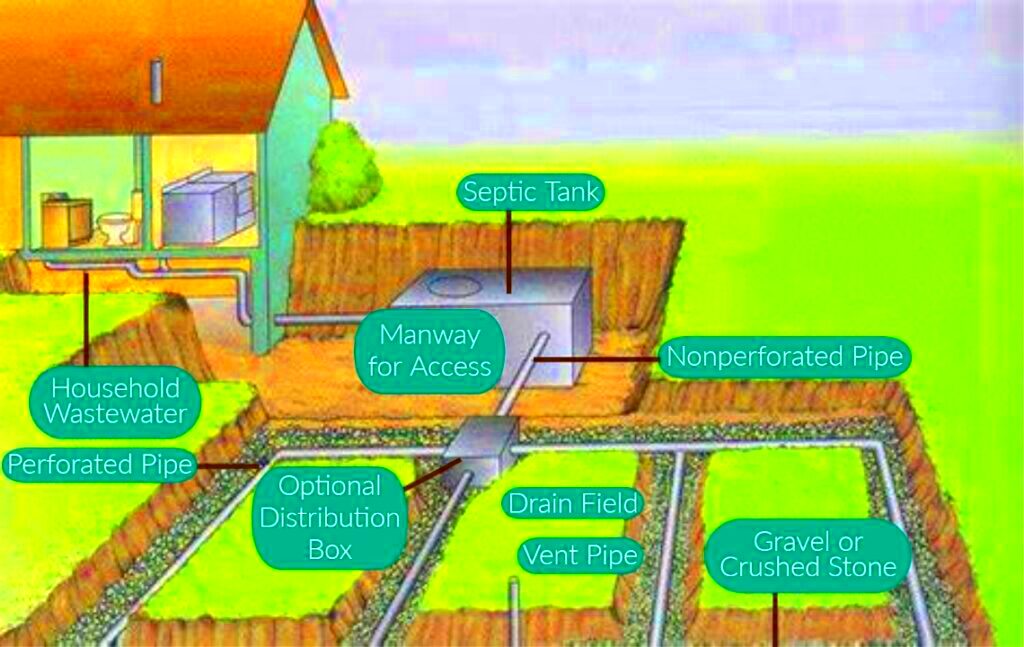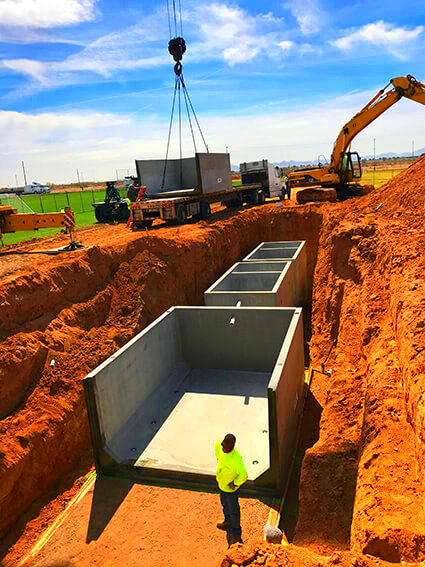Arizona Septic Tank Laws and Requirements for Property Owners
In Arizona, septic tank laws are crucial for property owners to understand. These laws ensure that wastewater is properly managed, protecting both public health and the environment. With a large portion of Arizona being rural, many properties rely on septic systems for wastewater disposal. Knowing the regulations helps homeowners maintain their systems effectively and avoid costly penalties.
Understanding Septic Systems in Arizona

Septic systems are essential for treating wastewater in areas without centralized sewer systems. They consist of a septic tank and a drain field. Here’s how they work:
- Septic Tank: This is a buried, watertight container that holds wastewater. Solids settle at the bottom, forming sludge, while lighter materials like grease float to the top.
- Drain Field: After treatment in the tank, liquid waste flows into the drain field, where it is further filtered through soil.
In Arizona, septic systems must meet specific criteria set by local health departments. These systems must be designed, installed, and maintained according to state regulations to prevent contamination of groundwater and protect public health.
Permitting Process for Septic Tanks

Before installing a septic tank in Arizona, homeowners must go through a permitting process. Here are the key steps:
- Site Evaluation: A licensed professional evaluates the property to determine soil type, drainage, and the best location for the system.
- Application Submission: Submit an application to the local health department along with the site evaluation results and system design.
- Review Process: The health department reviews the application to ensure it meets state and local regulations.
- Permit Issuance: Once approved, the permit allows the installation of the septic system.
It’s important to follow this process to avoid fines and ensure the system functions properly. Always consult with local authorities for specific requirements in your area.
Installation Requirements for Septic Systems

Installing a septic system in Arizona involves several important requirements to ensure it operates effectively and safely. Here’s what property owners need to know:
- Site Selection: Choose a location that is away from wells, streams, and other bodies of water. The site should have good drainage and be large enough to accommodate the system.
- Soil Testing: A soil percolation test is required to determine how well the soil absorbs water. This helps in deciding the size and type of the septic system.
- System Design: The design must comply with state and local regulations. A licensed engineer or septic designer typically creates the plans.
- Installation by Professionals: Only certified professionals should install the septic system. They ensure that all components are set up correctly and according to the approved design.
- Inspections: After installation, the local health department may require inspections to ensure everything meets safety standards.
By adhering to these requirements, homeowners can prevent future issues and ensure their septic systems function as intended.
Maintenance Guidelines for Property Owners

Proper maintenance of your septic system is vital for its longevity and efficiency. Here are some essential guidelines to follow:
- Regular Inspections: Schedule inspections every 1 to 3 years. A professional can check for leaks, blockages, and other potential issues.
- Pumping the Tank: Have the septic tank pumped every 3 to 5 years to remove sludge buildup. This prevents overflow and system failure.
- Avoid Harmful Chemicals: Refrain from flushing chemicals or non-biodegradable items down the toilet, as they can harm the system.
- Water Conservation: Be mindful of water usage. Excess water can overload the system. Fix leaks and consider water-efficient appliances.
- Protect the Drain Field: Keep the drain field area clear of trees, shrubs, and heavy objects that could compact the soil and damage the system.
Following these maintenance practices can help prevent costly repairs and ensure that your septic system operates smoothly.
Common Violations and Consequences
Understanding common violations related to septic systems is essential for property owners. Here are some frequent issues and their potential consequences:
| Common Violations | Consequences |
|---|---|
| Improper Installation | Fines and requirement to redo the installation. |
| Failing to Obtain Permits | Heavy fines and potential legal action. |
| Neglecting Maintenance | System failure, expensive repairs, or replacement. |
| Discharging Wastewater Improperly | Health risks and legal penalties. |
It’s crucial for property owners to stay informed and compliant with regulations to avoid these violations. Regular communication with local health authorities can help clarify any uncertainties regarding septic system management.
How to Comply with Local Health Regulations
Complying with local health regulations is essential for septic tank owners in Arizona. These regulations ensure the proper treatment of wastewater and protect public health. Here are steps to ensure compliance:
- Know Your Local Codes: Familiarize yourself with local health department codes regarding septic systems. Each county may have specific requirements.
- Obtain Necessary Permits: Always secure the proper permits before installing or making changes to your septic system. This helps avoid fines and ensures safety.
- Regular Inspections: Schedule routine inspections as required by local laws. Inspections help catch issues early and keep your system in good shape.
- Maintain Records: Keep detailed records of all inspections, maintenance, and pumping. This documentation can be valuable for demonstrating compliance.
- Educate Yourself: Attend local workshops or seminars on septic system maintenance and regulations. Staying informed can help you remain compliant.
By following these guidelines, property owners can ensure they meet local health regulations, protecting both their homes and the environment.
Resources for Septic Tank Owners
As a septic tank owner, having access to reliable resources can make a world of difference. Here are some valuable resources to help you:
- Local Health Departments: Your local health department is the primary source for regulations, permits, and guidelines regarding septic systems.
- Septic System Professionals: Consult licensed septic system contractors for installation, maintenance, and inspections. They can provide expert advice tailored to your situation.
- State Agencies: The Arizona Department of Environmental Quality (ADEQ) provides guidelines, educational materials, and resources related to septic systems.
- Online Communities: Join forums or social media groups where septic tank owners share experiences, tips, and recommendations.
- Educational Materials: Look for pamphlets, books, and online articles about septic system maintenance and best practices.
Utilizing these resources can help you manage your septic system effectively, ensuring it runs smoothly and complies with regulations.
Frequently Asked Questions
Here are some common questions about septic systems that many property owners have:
| Question | Answer |
|---|---|
| How often should I pump my septic tank? | Typically every 3 to 5 years, depending on household size and usage. |
| What should I avoid flushing down the toilet? | Avoid flushing non-biodegradable items, chemicals, and fats or oils. |
| How can I tell if my septic system is failing? | Signs include slow drains, sewage backups, or unpleasant odors around the tank or drain field. |
| Do I need a permit for repairs? | Yes, any major repairs or installations typically require a permit from your local health department. |
If you have further questions, don’t hesitate to reach out to local professionals or health departments for guidance. Understanding your septic system can lead to better maintenance and fewer issues in the long run.
Conclusion
Understanding Arizona septic tank laws and requirements is essential for property owners. By following the proper installation guidelines, adhering to maintenance practices, and complying with local health regulations, you can ensure your septic system operates efficiently and safely. Remember to utilize available resources, seek help when needed, and stay informed about best practices. Taking proactive steps can save you from costly repairs and protect both your property and the environment. With the right knowledge and actions, you can enjoy the benefits of a well-functioning septic system for years to come.


